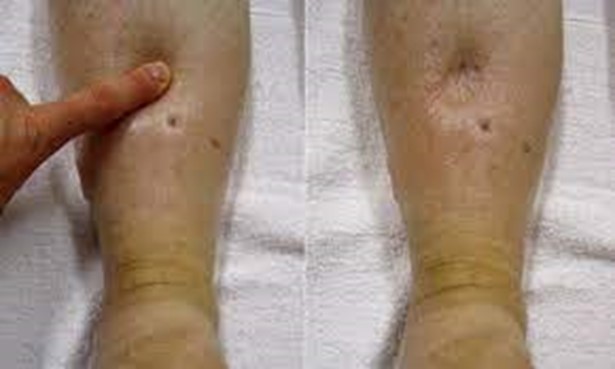A nurse is assisting with the admission of an older adult client to an acute care facility. The client states that they are afraid to go to sleep, fearing they will not wake up. Which of the following is a therapeutic response the nurse should make?
"I will have the nursing staff check on you frequently during the night."
"You are right to be afraid. This is a new place for you."
"I will give you your prescribed sleeping medication to help you fall asleep."
"Describe your concerns about sleeping to me.”
The Correct Answer is D
The correct answer is choice d. "Describe your concerns about sleeping to me.".
Choice A rationale:
While offering frequent checks can provide some reassurance, it does not address the underlying fear the client is experiencing. It is more of a practical solution rather than a therapeutic one.
Choice B rationale:
Agreeing with the client’s fear without offering a solution or support can increase their anxiety. It is important to acknowledge their feelings but also to provide comfort and reassurance.
Choice C rationale:
Offering sleeping medication might help the client fall asleep, but it does not address the root cause of their fear. It is important to understand and address the client’s concerns directly.
Choice D rationale:
Asking the client to describe their concerns is a therapeutic approach that encourages them to express their fears. This allows the nurse to understand the client’s perspective and provide appropriate emotional support.
Nursing Test Bank
Naxlex Comprehensive Predictor Exams
Related Questions
Correct Answer is C
Explanation
The correct answer is Choice C: 3+ pitting edema.
Choice A rationale:
1+ pitting edema refers to mild pitting edema. It is characterized by a slight indentation that disappears rapidly. A measurement of 6 mm edema is beyond the scope of 1+ pitting edema.
Choice B rationale:
2+ pitting edema indicates moderate pitting edema. It is characterized by a deeper indentation that takes a few seconds to rebound. While 6 mm edema might be associated with 2+ pitting edema, it is not the most accurate description.
Choice C rationale:
3+ pitting edema signifies moderately severe pitting edema. It is characterized by a noticeable indentation that remains for a short duration. A measurement of 6 mm edema aligns with 3+ pitting edema, making it the correct choice.

Choice D rationale:
4+ pitting edema represents severe pitting edema. It is characterized by a deep indentation that persists for a significant amount of time. 6 mm edema is not typically associated with 4+ pitting edema.
Correct Answer is A
Explanation
Choice A rationale:
The correct answer. A piston syringe is used for wound irrigation to deliver a controlled and directed flow of fluid to clean the wound. It helps remove debris and promote healing. This choice aligns with wound irrigation best practices.
Choice B rationale:
Barrier ointment is not typically used for wound irrigation. Its purpose is to protect intact skin from moisture, friction, and other irritants, rather than to clean wounds.
Choice C rationale:
Chilled irrigation solution is not commonly used for wound irrigation. Room temperature or warm sterile saline is usually recommended for wound cleansing as cold solutions can cause discomfort and vasoconstriction.
Choice D rationale:
Sterile cotton balls are not used for wound irrigation. They may leave fibers in the wound, potentially leading to infection. Wound irrigation is usually performed using sterile syringes, solutions, and appropriate irrigation devices.
Whether you are a student looking to ace your exams or a practicing nurse seeking to enhance your expertise , our nursing education contents will empower you with the confidence and competence to make a difference in the lives of patients and become a respected leader in the healthcare field.
Visit Naxlex, invest in your future and unlock endless possibilities with our unparalleled nursing education contents today
Report Wrong Answer on the Current Question
Do you disagree with the answer? If yes, what is your expected answer? Explain.
Kindly be descriptive with the issue you are facing.
